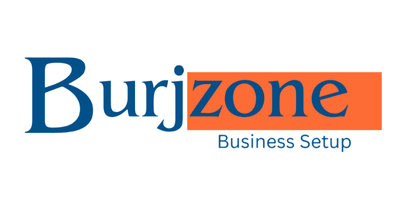Our Blog
Home / Blog
How to Prepare Annual Audit & Compliance Reports for UAE Authorities: A Step-by-Step Guide
In the UAE’s competitive business environment, preparing and submitting accurate annual audit and compliance reports is essential for maintaining your company’s good standing. Whether your business operates in Dubai Mainland, Sharjah Freezone, or Abu Dhabi, these reports ensure you meet legal requirements set by the Federal Tax Authority (FTA), economic departments, and freezone authorities.
This step-by-step guide will help you prepare comprehensive audit and compliance reports that satisfy UAE regulatory standards, reduce risks, and support your business growth.
1. Understand Your Reporting Obligations
Different entities have varying requirements based on their location and license type:
-
Mainland companies registered with Dubai DED, Abu Dhabi ADDED, or Sharjah Economic Department typically must submit annual audited financial statements.
-
Freezone companies in Dubai Internet City, Sharjah Hamriyah, Ajman Freezone, and others have specific audit and compliance reporting rules defined by their authorities.
-
Businesses subject to VAT and Corporate Tax must also include compliance reports aligned with tax filings.
Clarify your obligations early to avoid penalties.
2. Maintain Proper Financial Records Throughout the Year
Successful reporting begins with meticulous record-keeping:
-
Track all income and expenses
-
Keep invoices, receipts, bank statements, and contracts organized
-
Use accounting software compatible with UAE tax regulations
-
Ensure VAT and tax data are accurately recorded
This foundation simplifies the audit process and helps generate accurate compliance reports.
3. Engage a Licensed Auditor or Accounting Firm
Hiring a professional auditor licensed by the UAE Ministry of Economy or the relevant freezone authority is crucial. The auditor will:
-
Review your financial records
-
Verify compliance with accounting standards (IFRS)
-
Identify discrepancies or errors
-
Prepare the audit report and certification required by authorities
For businesses in Dubai Internet City, Sharjah Freezone, and other zones, choosing an experienced local auditor ensures adherence to specific jurisdictional requirements.
4. Prepare the Audit Report
The audit report typically includes:
-
Auditor’s opinion on the fairness and accuracy of financial statements
-
Summary of accounting policies used
-
Notes on any significant findings or discrepancies
-
Confirmation of compliance with UAE laws and regulations
Make sure the report is signed by the licensed auditor and submitted on time.
5. Compile the Compliance Report
Compliance reports may include:
-
Confirmation of VAT and corporate tax filings
-
Details of regulatory licenses and renewals
-
Summary of employee labor law compliance
-
Any other documents requested by freezone or mainland authorities
These reports demonstrate your business is operating within legal frameworks.
6. Submit Reports to Relevant Authorities
Depending on your business location, submit audit and compliance reports to:
-
Dubai Department of Economic Development (DED) or equivalent in Abu Dhabi and Sharjah
-
Freezone Authorities such as Dubai Internet City, Sharjah Hamriyah, or Ajman Freezone
-
Federal Tax Authority (FTA) for VAT and corporate tax purposes
Adhere to deadlines to avoid fines or penalties.
7. Keep Records for Future Reference
UAE law mandates keeping financial and audit records for at least 5 to 7 years. This ensures you are prepared for any future audits, inspections, or legal inquiries.
Preparing annual audit and compliance reports can seem complex, but with proper planning and professional assistance, your business in Dubai, Sharjah, or Abu Dhabi can stay fully compliant. Accurate reports protect your company’s reputation, support smooth license renewals, and provide valuable insights for strategic growth.
#UAEAuditReports #ComplianceReportsUAE #DubaiAudit2025 #SharjahBusinessCompliance #AbuDhabiTaxCompliance
#FTAReportingUAE #FreezoneAuditReports #UAEFinancialReporting #BusinessComplianceUAE #CorporateGovernanceUAE
